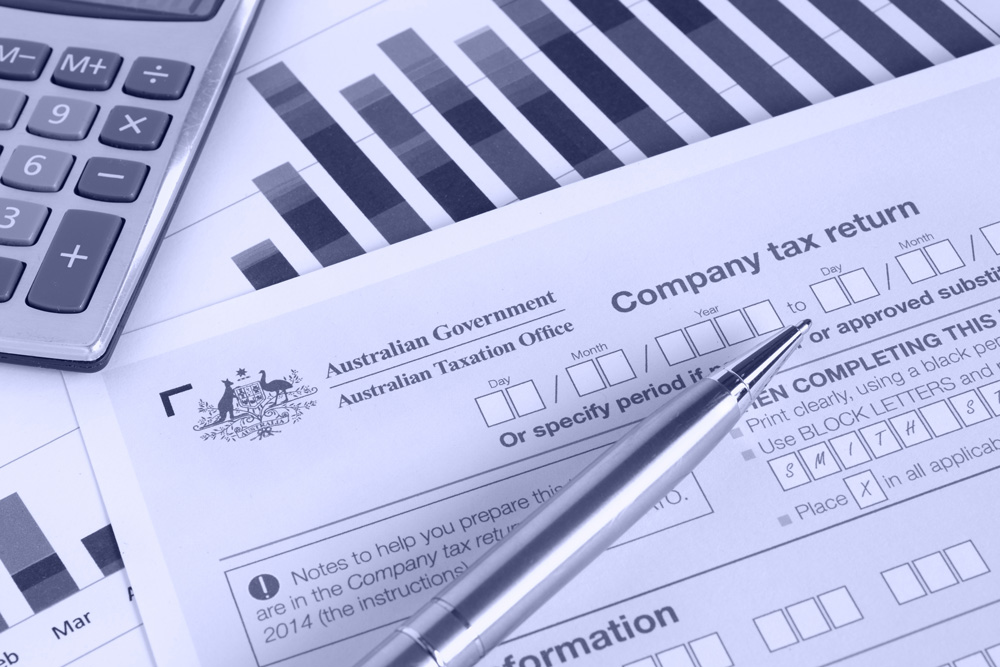Applying for an ABN in Australia
An ABN (Australian Business Number) is a unique 11-digit number used to identify your business when dealing with the government, customers, and other businesses. Issued by the Australian Business Register (ABR), it’s a key requirement for operating legally and efficiently across all levels of government.
If you’re running a business or planning to start one, applying for an ABN in Australia is an important first step. It not only helps you meet tax obligations but also impacts how you manage invoices, claim GST, and interact with the ATO at tax time.
What is the ABN and Who Needs It?
Before anything else, it’s important to understand that an Australian Business Number (ABN) is not the same as a Tax File Number (TFN). If you’re a business owner in Australia, you may need both. While they serve different purposes, both can be required for business and tax matters.
In most cases, businesses operating in Australia must have an ABN. You’ll need to apply through the Australian Business Register (ABR) to obtain one. However, an ABN isn’t required for everyone.
Business visa holders planning to start a business in Australia should apply for an ABN. Similarly, if you intend to manage or operate a business in Australia, you must have one. On the other hand, employees are not required to hold an ABN. The same applies if you’re using your employer’s tools or resources to carry out your work — an ABN is not necessary in those cases.
What exactly is it though?
An ABN is a unique 11-digit number that identifies your business when dealing with the Australian Taxation Office (ATO) and other organisations. It plays a key role in commercial transactions, including issuing invoices, registering for GST, and lodging your Business Activity Statement (BAS).
In a country as large as Australia, many businesses — particularly small ones — may have similar names. The ABN helps clearly distinguish your business from others, so customers, suppliers, and government bodies can be sure they’re dealing with the correct entity.
If you’re operating a business in Australia, an ABN is essential — regardless of the size or structure. It acts as your business ID and confirms your legitimacy in the eyes of both the government and the public.
Once you’ve applied for an ABN, it’s also your responsibility to keep your details up to date. You must also lodge your BAS if required, especially if you’re registered for GST.
Not everyone is eligible for an ABN. If your application is unsuccessful, it may be because you do not meet the core eligibility requirements. To qualify, you must:
-
Be carrying on or starting an enterprise in Australia
-
Be making, or intending to make, supplies connected with the indirect tax zone
-
Be a company registered under the Corporations Act 2001
The indirect tax zone includes mainland Australia and its territories but excludes certain offshore external territories. If you’re unsure whether you meet the requirements, it’s best to review your situation or speak with a registered tax professional.
ABN vs ACN
ABNs and ACNs are often confused, but they serve different purposes.
An ABN (Australian Business Number) is issued by the Australian Business Register and is required for all types of businesses — including sole traders, partnerships, trusts, and companies. It identifies your business for tax and commercial purposes.
An ACN (Australian Company Number) is issued by ASIC (Australian Securities and Investments Commission) and is only required for companies. A company is a specific type of legal entity with a structure that is separate from its owners. Companies have shareholders (owners) and directors (managers), and must comply with more complex reporting and regulatory obligations.
Not all businesses are companies. Many individuals operate as sole traders or through partnerships and trusts. While these businesses still require an ABN, they do not need an ACN unless they register as a company.
If you’re running a company, you’ll need both an ACN and an ABN. In most cases, the ABN will include the ACN, with two additional leading digits.
When you register a company in Australia, you’re subject to strict regulation by the Australian Securities and Investments Commission (ASIC). Companies must comply with detailed reporting, governance, and legal requirements. While trusts, sole traders, and partnerships also have legal obligations, company regulations are generally more complex. Directors who fail to meet these obligations may face civil or criminal penalties.
An ACN (Australian Company Number) is similar in function to an ABN, but there are key differences. An ACN is a unique 9-digit number issued only to companies by ASIC. In contrast, an ABN (Australian Business Number) is an 11-digit number issued by the Australian Business Register (ABR) and is used by all business structures.
Both numbers help identify your business or company in official dealings. While the ABN is used for tax and invoicing purposes, the ACN is used to identify your company in legal and regulatory contexts. Most companies in Australia will hold both an ACN and an ABN — the ABN will usually include the ACN, with two additional digits at the front.
ASIC uses the Australian Company Number (ACN) to monitor and regulate companies across Australia. While most businesses need an ABN, companies that are actively trading will typically need both an ABN and an ACN.
If you’re planning to run a company that engages in business activities — such as trading, invoicing, or providing services — you’ll need to apply for an ABN in addition to your ACN. However, if the company exists solely to hold assets and does not conduct any business activity, an ABN may not be required.
When a company applies for an ABN, the ACN is used as the base number. The ABN will include the 9-digit ACN, with two additional digits added to the front, making it a unique 11-digit identifier for the business.
How to Get an Australian Business Number
Before you apply for an ABN, you should first decide the right structure of your business. Therefore, you should identify if it is a sole trader, partnership, or company.
The application requirements will depend on your circumstances. However, it will mostly involve the following:
- Your tax file number (TFN)
- If you have any associates, such as your trustees, directors, or partners, you should also provide their tax file numbers
- Tax agent registration number
- Legal name of your entity, which appears on its legal and official documents
- Authorised contacts, which can be your name or your tax agent. Note that if you provide the name of your tax agent, you give them the power to make modifications, such as updating certain details, on behalf of the business.
- Details of your associates if you will have partners, trustees, or any other person running the business
- Contact details of your business, including its address and postal address. You will also be asked to provide its email address and phone number. Be aware that the email address should have at least five to 200 characters. There should not be any spaces and should not begin with the words “Support,” “Info,” or “Sales.”
- Location of the business, apart from the main site. The address should include all the premises where your enterprise operates. Although it is required, you may be allowed not to divulge such information if it will threaten the risk of your business, workers, or clients. For instance, those who hold a women’s refuge can keep the details of their location in private.
If you’ve previously held an ABN or ACN, you’ll need to provide those details during your application. Companies registered with ASIC should also supply their Australian Company Number (ACN) or, where applicable, an Australian Registered Body Number (ARBN).
You’ll also be asked to provide the date you expect to start business activities. This could include trading, invoicing, or even preparing to launch — but the date must be within six months of your application.
In most cases, you must also describe your main business activity, such as construction, consulting, or retail. Some entities, like self-managed super funds, may not carry on a business and therefore might not list a primary activity.
Once you have all the required information, you can apply for an ABN through the official Australian Business Register (ABR) website. If you already have an ABN and need to update your details, you can also do that through the same site.
The application process is generally quick and straightforward. If your information is complete — including your Tax File Number — your ABN may be issued immediately. In most cases, you’ll receive it within a few hours to a couple of business days.
If you don’t have all the required details on hand, you can start the application and save your progress. Just return to it once you’ve gathered the remaining information. Keep in mind that incomplete applications may delay processing or result in a referral for manual review.
To avoid delays, make sure you follow the application instructions carefully. Once you have been approved, you can get the following benefits:
- You will receive your Australian Business Number
- You can print the information you have received or save your ABN details
- You can apply for other registrations that are suitable for your business, including Goods and Services Tax (GST)
- You can also claim credits for energy grants
- If you have an online business, you will benefit from the ability to obtain an Australian domain name
- ABN also allows you to avoid Pay as You Go (PAYG) tax on every payment you receive from your customers
- The Australian Business Register will immediately add your details to its log.
- You can ask the ABR to keep certain details in private if you are worried about the security of your business
If your request to keep certain ABN details private is denied, you may lodge an objection or appeal through the ABR.
Once your ABN is issued, it’s your responsibility to keep your information up to date. Applying for an ABN is free, but approval is not guaranteed.
If your application is declined, you’ll receive a refusal number and a letter from the Australian Business Register within 14 days outlining the reason. This letter will explain whether you’re eligible to reapply or pursue other options, including review rights.
If your application is incomplete, you’ll receive a reference number while it’s under review. Most complete applications are processed quickly, but some may take up to 20 business days. The ABR may contact you if more information is needed.
To check the status of your ABN, use the official ABN Lookup service.
What If You Have Multiple Businesses?
You can run multiple business ventures under one ABN — as long as they share the same business structure. For example, if all your ventures operate as a sole trader, you only need one ABN.
However, if you operate businesses with different structures — such as a sole trader and a partnership — you’ll need to apply for a separate ABN for each. Your existing ABN will also need to be cancelled if you change the structure of your business. For instance, if you switch from sole trader to a company or partnership, a new ABN must be registered.
When you’re ready to take the next step with your ABN and lodge your tax return, the team at TaxReturn.com.au is here to help you maximise your refund.





